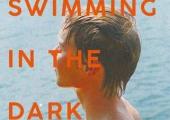Anne Applebaum: Twilight of Democracy review - lost friends and new hope

The historian has experience of the Centre Right's collapse in Poland and America
Things fell apart; the Centre Right could not hold. Anne Applebaum knows it from the inside. A Reaganite with whom I imagine a civilized conversation would have been possible even in former times married to a Polish politician, now MEP, Radek Sikorski, whose many good deeds speak louder than his views, Applebaum has produced a concise, lucid and very readable summary of how it all went wrong.








